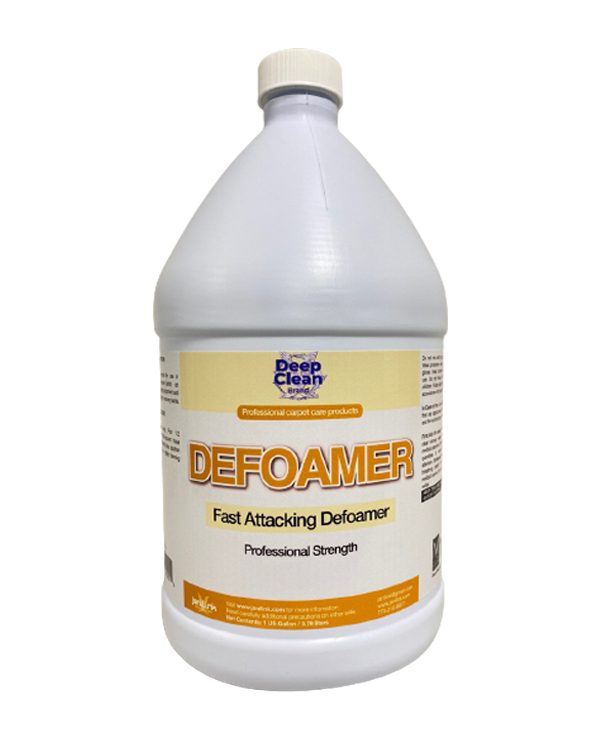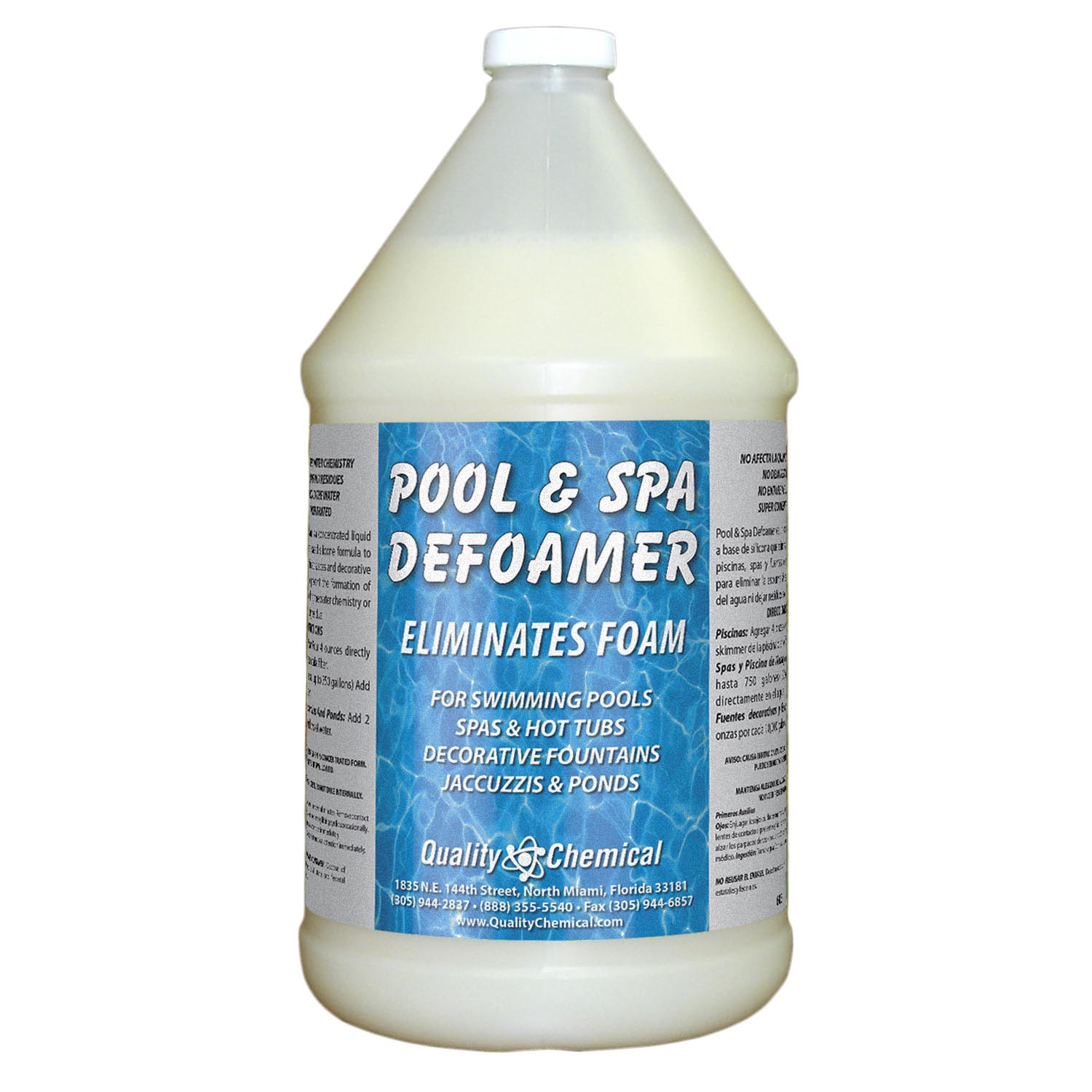Discover the Top Reasons You Required a Chemical Defoamer for Effective Foam Control
Chemical defoamers offer as necessary agents that minimize foam development, thus improving processes in fields such as food production, pharmaceuticals, and wastewater treatment. As we discover the diverse advantages of chemical defoamers, it ends up being noticeable that their function expands beyond simple foam decrease, impacting general productivity in methods that might not be immediately evident.
Boosted Operational Effectiveness
The visibility of foam can hinder production by obstructing tools, decreasing capacity, and making complex procedure control. By decreasing surface tension, they help with the fast collapse of foam, allowing for smoother operation and reducing downtime.
In sectors such as food and beverage, drugs, and wastewater treatment, the application of defoamers enhances procedure stability and item high quality. In fermentation processes, controlling foam generation is crucial for making the most of return and efficiency. In addition, using defoamers can cause much more reliable mixing and aeration, causing boosted reaction times and general efficiency.
Furthermore, when foam is properly controlled, it minimizes the danger of overflow and contamination, making certain conformity with security and top quality criteria. This not only simplifies operations however also enables far better resource usage. Inevitably, the integration of chemical defoamers right into commercial processes cultivates an extra reliable operations, optimizing outcome while maintaining high-grade criteria. Therefore, their role in boosting operational efficiency can not be overstated.
Cost Cost Savings and Source Monitoring

In several applications, too much foam can trigger overuse of chemicals, leading to unnecessary expenses. By managing foam degrees, businesses can enhance their chemical input, thus reducing functional prices.
Additionally, reduced foam in processing systems can boost the total throughput, enabling centers to enhance production ability without sustaining additional costs - Chemical Defoamer. This efficient resource administration translates into considerable financial benefits, enabling businesses to designate funds toward innovation or expansion. In recap, the combination of chemical defoamers into industrial procedures fosters a much more cost-efficient and resource-efficient setting, eventually sustaining organizational growth and sustainability
Improved Item High Quality

The usage of chemical defoamers plays an important role in improving product top quality across various industries. Excessive foam can cause inconsistent item formulas, affecting the final features of products such as paints, layers, foodstuff, and pharmaceuticals. By alleviating foam development, chemical defoamers assist in smoother manufacturing procedures, making certain that solutions stay consistent and meet specified quality standards.
In the food and beverage sector, for example, the existence of foam can impact the clarity and preference of items, ultimately affecting customer fulfillment. Chemical defoamers help preserve the desired texture and look, thus improving the overall top quality of the final product. In the manufacturing of finishes and paints, foam can lead to issues such as pinholes and inadequate adhesion, threatening the product's efficiency.
Moreover, using defoamers can boost the performance of processes like fermentation and emulsification, which are crucial for achieving desired item characteristics. By simplifying manufacturing and making certain constant high quality, chemical defoamers not only boost completion product however also contribute to a positive brand track record. Thus, buying efficient foam control options is crucial for any type of company aiming to supply premium items consistently.
Devices Protection and Longevity
Decreasing foam production is essential for safeguarding devices and ensuring its longevity in different commercial applications. Too much foam can lead to a variety of operational concerns, including devices damage, enhanced maintenance prices, and unplanned downtime. When foam accumulates, it can create overflow, leading to spills that jeopardize the stability of equipment and surrounding areas.
Moreover, foam can obstruct pumps and sensors, which can prevent efficiency and effectiveness. In severe instances, it can More about the author result in the break down of parts, requiring expensive repair services or replacements. By using a chemical defoamer, firms can effectively minimize foam development, therefore guarding their equipment from the destructive effects of foam-related issues.
In addition to avoiding damages, reliable foam control can significantly boost the functional life expectancy of machinery. Investing in a quality chemical defoamer is an aggressive method for protecting tools and fostering durability in commercial settings.
Versatility Across Industries
Chemical defoamers play a crucial function in various industries, effectively attending to foam-related challenges across diverse applications. Their flexibility is evident in from this source industries such as food and drink, drugs, and wastewater treatment, where foam can decrease and hamper processes efficiency. In the food market, defoamers make sure smooth production by avoiding foam formation during blending, fermentation, and bottling, therefore preserving product quality and consistency.

Moreover, in wastewater therapy centers, chemical defoamers are used to control foam during the aeration process, advertising optimal microbial task and improving my latest blog post the overall therapy effectiveness. Their ability to work efficiently in high-temperature and high-shear environments additionally highlights their flexibility.
Final Thought
In final thought, the use of chemical defoamers is important for effective foam control throughout various sectors. The adaptability of defoamers allows for prevalent application in food manufacturing, pharmaceuticals, and wastewater therapy, eventually adding to sustainable growth and the maintenance of high functional standards (Chemical Defoamer).
Chemical defoamers offer as vital representatives that minimize foam development, therefore improving procedures in sectors such as food manufacturing, drugs, and wastewater treatment. As we explore the multifaceted benefits of chemical defoamers, it ends up being noticeable that their role extends past mere foam decrease, impacting overall productivity in ways that may not be immediately evident.
By reducing foam development, chemical defoamers help with smoother manufacturing processes, making sure that formulas stay uniform and fulfill specific top quality requirements.
By making use of a chemical defoamer, companies can successfully minimize foam formation, thus securing their equipment from the detrimental impacts of foam-related issues.
In conclusion, the utilization of chemical defoamers is vital for reliable foam control throughout various sectors.